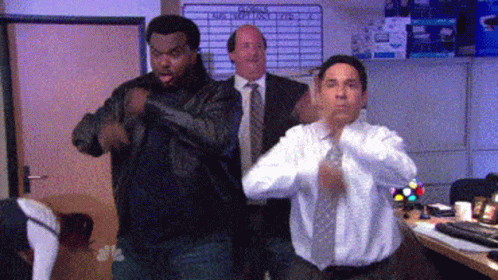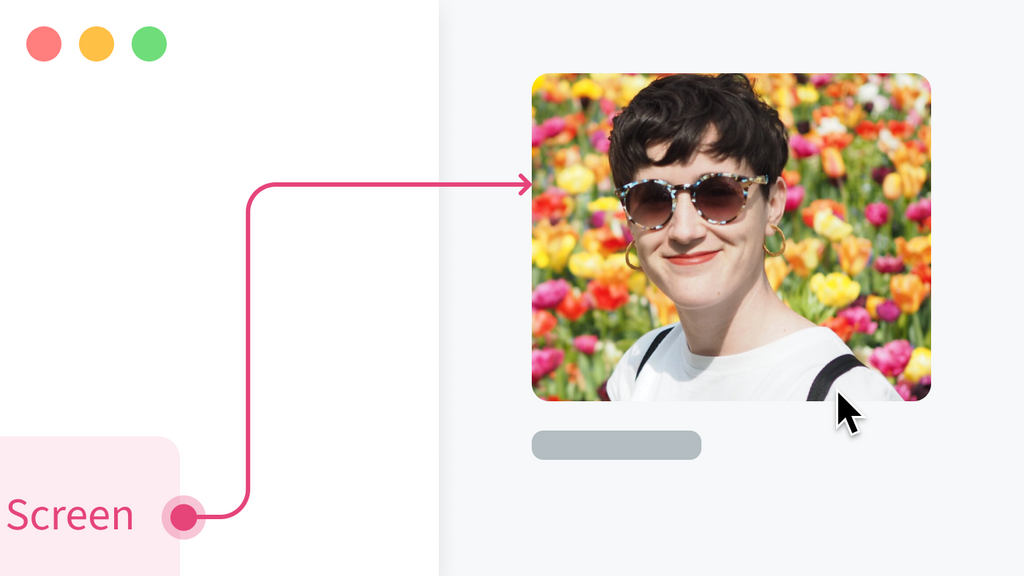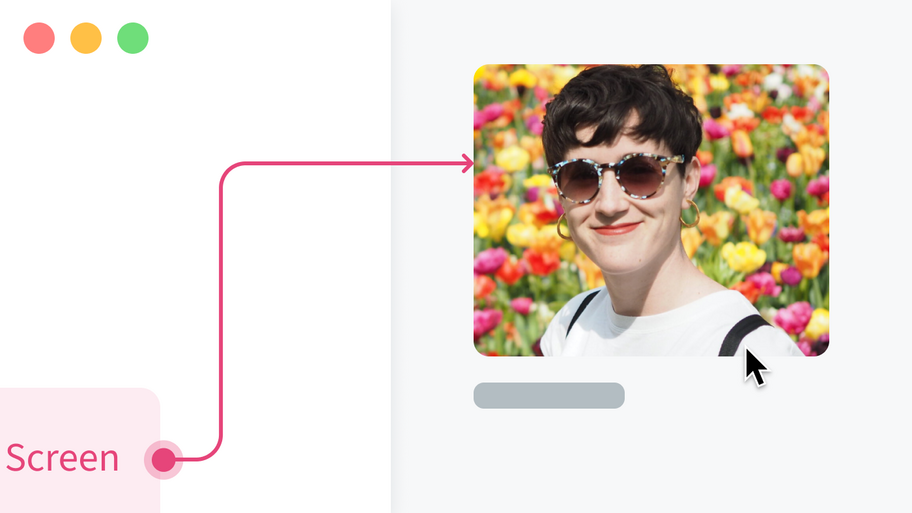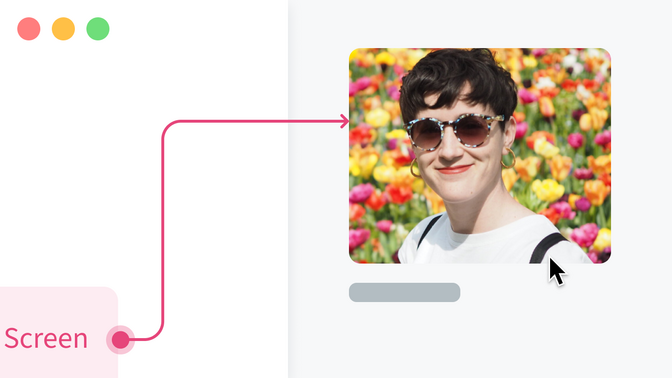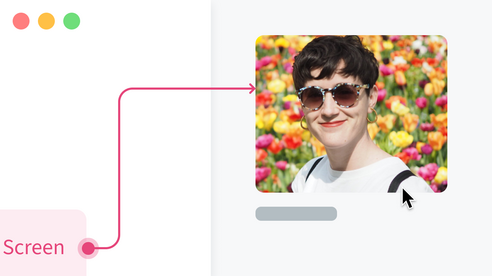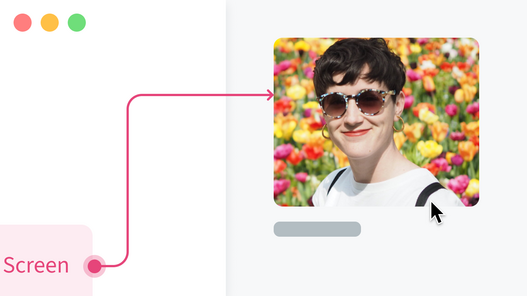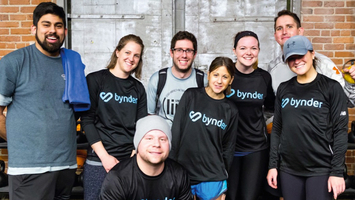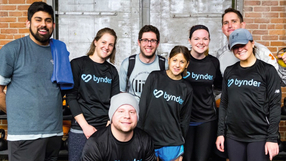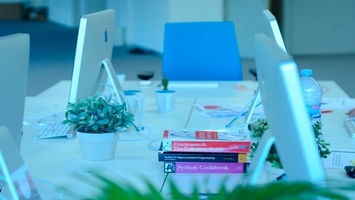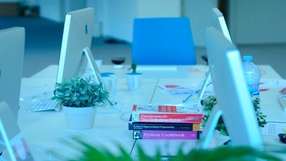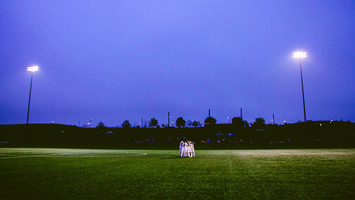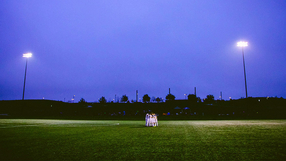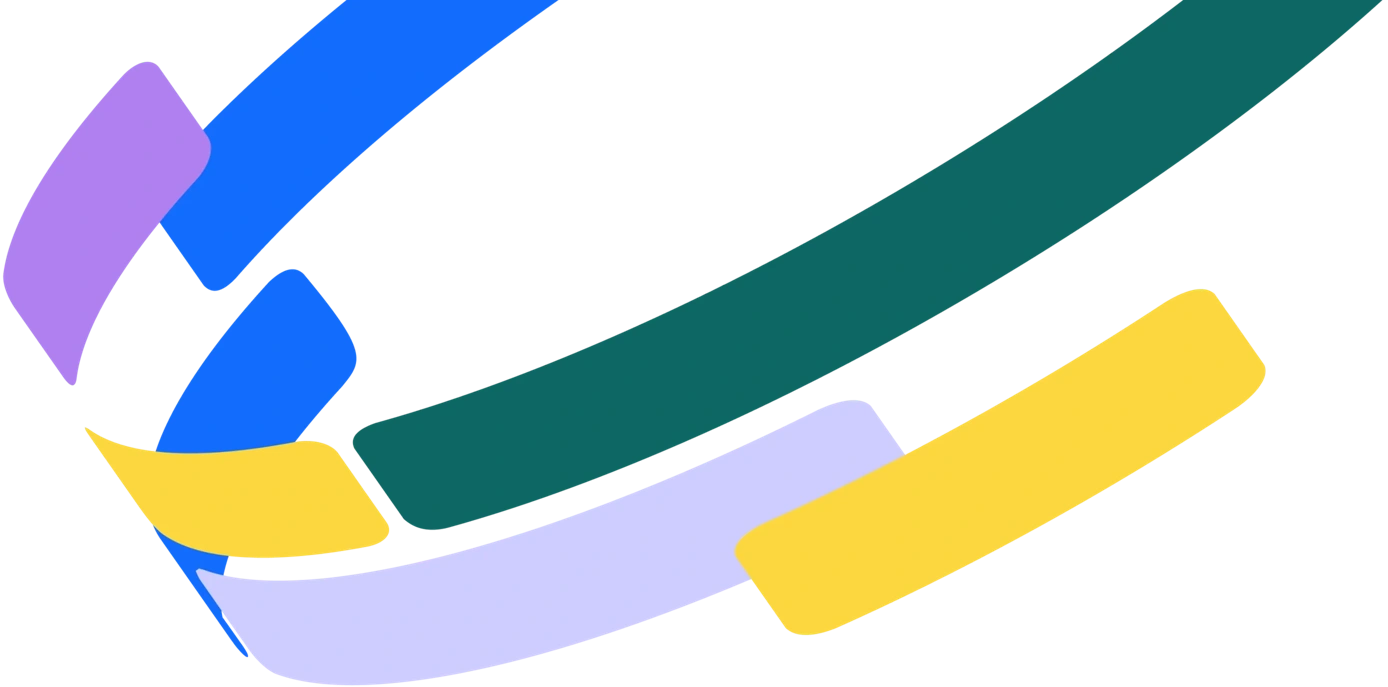Seven years working in design. A master’s degree. Sketch is outdated. Get into Figma. Attend Figma configs. Also online courses (need to be up to date in the latest technologies). Add work experiences in my CV. Three months of pandemic, so three months of lockdown; so three months to update my portfolio because, when will I have such perfect timing for it again? A burnout. More portfolio updates. Add a new case study. Prepare for the technical interview. Impostor syndrome kicks in. Help me! Take-home exercise? Salary expectations? Why is this taking so much time? Am I sure I wanna leave or should I stay? Help me again 🥴
Does this sound familiar? If yes, bring it in. 🫂

As a Product Designer who recently joined Bynder, I hold these situations close to my heart because they happened very recently, and I know many designers who could relate to this chaos and workload at some point in their lives too. As creative people, not only do we need to prepare both the CV and the interviews, but we also feel the responsibility of having a brand-new polished portfolio online with top-notch projects to showcase to an audience (seriously, am I the only one feeling chased by this pressure? 😳). The market is full of talented professionals and we constantly need to thrive for perfection and at the same time be super aware of the latest trends. It may seem exhausting that it requires an extra effort to look for a job in our cases, but we do it because we love our day-to-day and would love to spend even more time of our lives learning, growing, experiencing and breathing design.
But hey, landing a job is not only a giving+giving+giving equation; rather it is a give and receive. Designers usually stress out a bit getting all our CVs and deliverables ready for the big ‘Apply Now’ day.
That being said, it’s okay to be a bit selfish and mindful of our needs sometimes; in the same way employers expect a return of their investment in us (a ROI if you will) we should expect the same from them when dedicating so much effort into having the right knowledge and skills to be attractive in the market in the first place. Which is why it’s important to have a clear idea of what kind of ‘receives’ we need and want to get in return for our long hours spent while on the ‘hunt’.
Think about all the things you want to learn and do in the position you’re applying for — are they all covered? Will you be falling back to do the same old things you were doing in your previous chaotic start-up? Or is this a place that gives you excitement and motivation to learn those skills you always wanted to be good at? It’s either a matter of growth, salary or position, but it’s ideal to have a very good understanding of what your focus will be when taking over your new position.
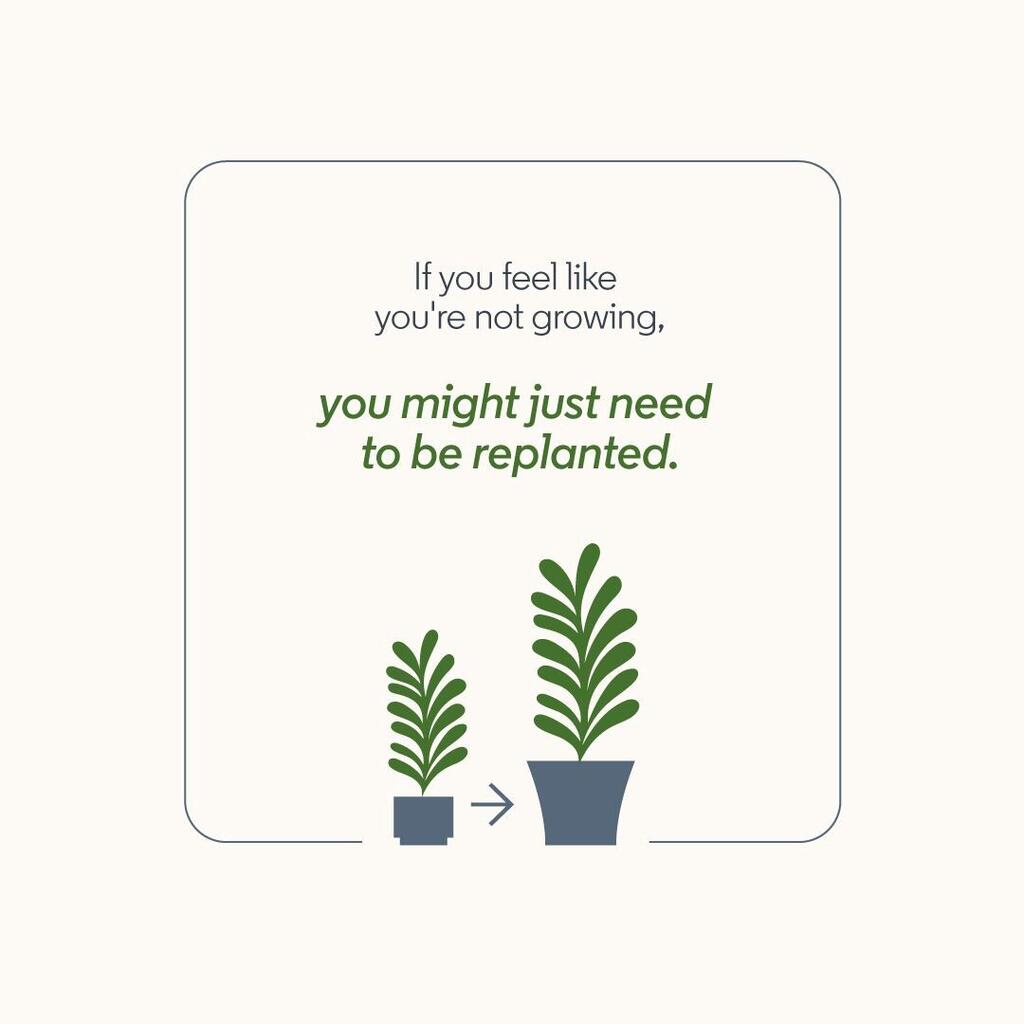
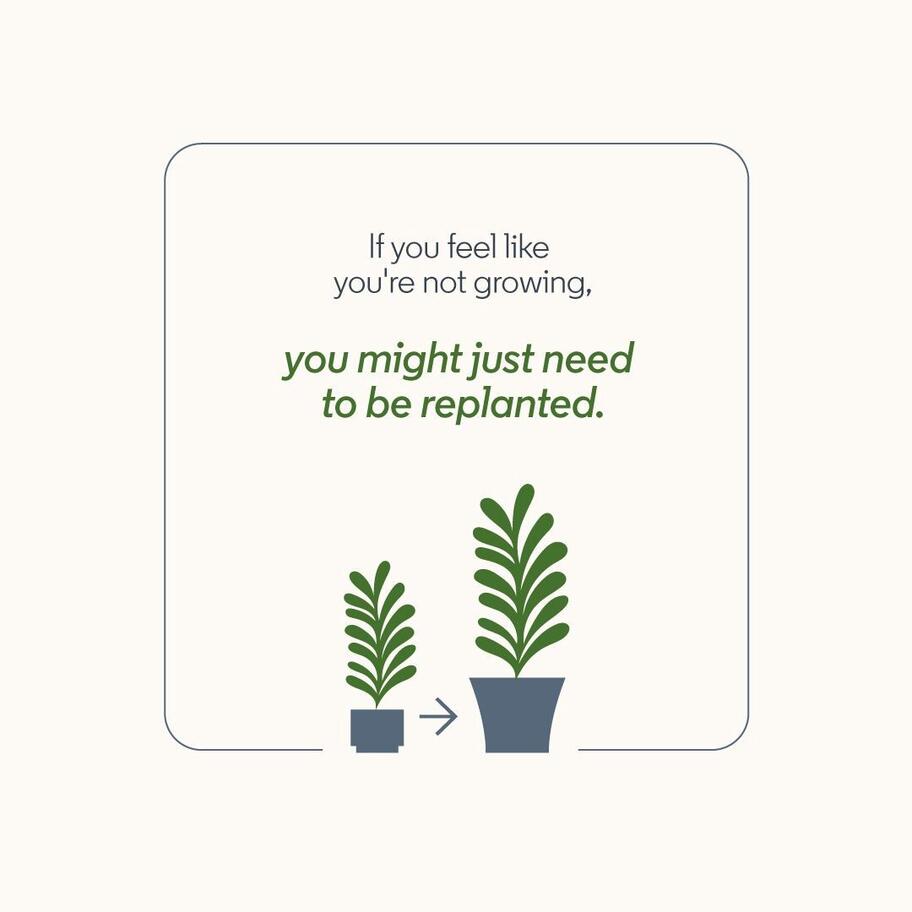
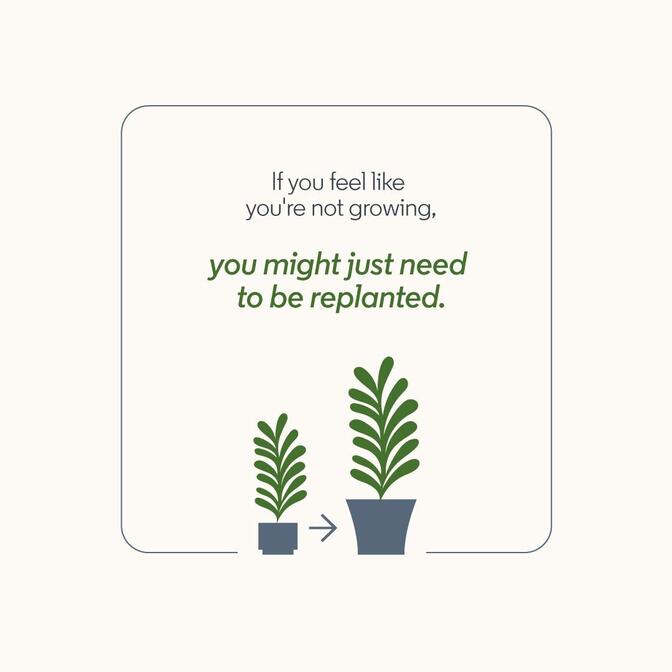
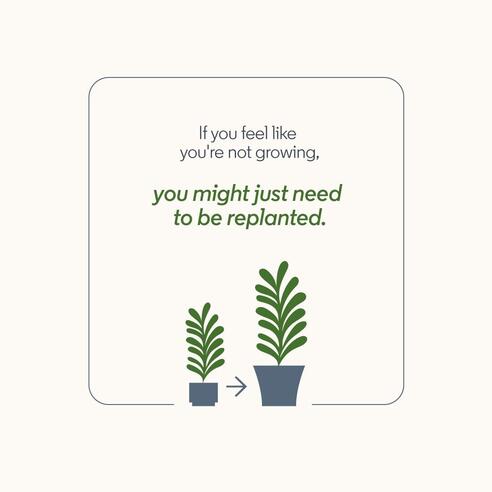
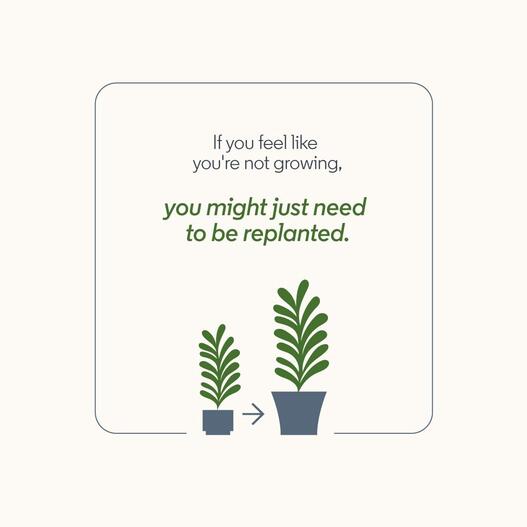
It’s a good exercise to look back, reflect and do a bit of introspection and some sort of ‘mini self-retrospective’, as well as a list of ideal features your new company/role/colleague candidates should have (nice to haves, let’s not get too picky here) in order to consider applying for a job:
- 🔍 Look at the past. What did you enjoy the most about your past experiences? Why did you leave your former positions and what were the things you wish were changed for you to stay longer? As a side note I can tell you that most people quit their jobs because of ‘lack of growth’, so just know that you’re not alone in wanting to leave a place when you feel there’s no more room to grow; there’s very little risk in trying new things when you’re young and still in the process of figuring out what you like and don’t like. Don’t be afraid to get out of your comfort zone and try new experiences that keep you challenged and growing at a steady pace.
- 🎯 The present is also key. Why is now a good moment to switch jobs? What has changed that is out of your control and is compelling you to quit? Why is today the best moment to do so? Is there a chance to get what you want in your current position? Perhaps it’s important to point out that you should always try to make it work and change what you can in your current job first, before parting ways. But if the time has come, which can be the case, have in mind the trigger that made you take the decision. That trigger will be the focus point that you’ll need to cover in the job search you’re about to start.
- 🏆 Think about the future too. This might be the most important one. What does your dream job look like? Does that resemble the company you’re applying to? How do you want to be treated? What are those new feelings or experiences you are looking for that are missing now? Write down all these things so you take them into account for a pass or a no-go during your company research. You know what? I’ll help you with some: position, company size, team size, company culture, industry, technologies used, learning, impact in society, salary, benefits, schedules, growth possibilities, location, employer/brand reputation, hierarchy… Keep in mind that this is also a very personal journey for everyone, and that journey plays out differently for each person. Some people will focus on the moneyz (and that’s ok, I mean, we have to pay the bills), others will focus on being value / impact oriented while others will put all the priority to work-life balance and perks. Imagine your ideal and happy daily journey in your future company and lead your efforts in that direction to make it happen.
Once you run this small exercise, chances are you will get a more clear idea of why you’re taking this decision in the first place and what you should look for in the new position. I know, it’s yet another piece of homework to add to an already encumbered to-do list before looking for a job, but it does pay off as you look back at the outcome 😌.
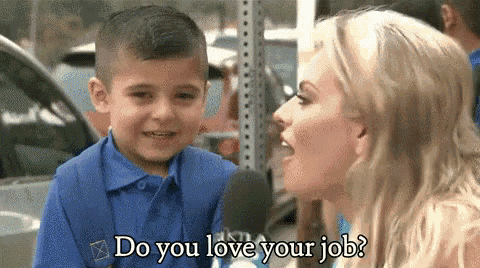
You may have some companies and roles sorted out in the market by then, and if you already received the invite for the first call, the future looks a bit brighter today (high five!🖐). The meetings will probably have plenty of room for both of you to discover if you’re meant to be. In addition, use the interview process to your advantage: Ask as many questions as you can that help you be reassured that you want that company as much as they want you. Don’t forget that this will also earn you points with hiring managers 😉 so don’t be afraid to clear out any doubts in order to be extra certain of the decision you’re taking, information is power and you want to make a wise decision. If you’re a huge nerd like me, go as far as creating a spreadsheet to track the information you gather from the interviews and learn from that. Also, you’ll get a cool kid badge.
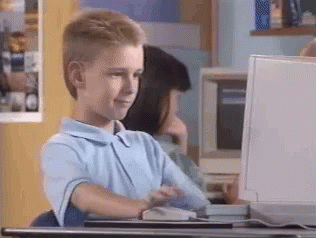
If you are in a lucky scenario and after all your hard dedication you get a cool job offer from your beloved dream company. Congratulations!, you earned your cookies, and you get a brand new job filled with excitement and shiny projects ahead! 🥳 It can even be the case that you get not one, but maybe two or more job offers that really interest you and put you in a choice situation. Let me tell you that you are very privileged and that all the overthinking will for sure turn out into a better decision by simply running a ‘pros and cons’ activity and sorting out what weighs most in the priorities, likes and needs’ balance (remember the coolest Excel sheet mentioned above? It definitely helps 😌).
It doesn’t matter if you get rejected from some top jobs (rejection also happens and it is part of the journey); new fresh opportunities will appear in the horizon eventually and you will be willing to fight for them in no time. I encourage you to not give up! Maybe it wasn’t the right time or the right position, or the ‘magic’ didn’t happen, and I’m sure most of us can relate with being rejected from a very nice looking job at least once. The worst thing that happens in those cases is that we learn and get clearer ideas of what we want and don’t want.
If a personal overview can serve as an example, I myself have worked in (UX) design teams for Customer Success, Marketing/Revenue and Product teams, in industries such as consultancies, private aviation, HR or marketing and have been rejected by start-ups which then became unicorns and are now kicking the tech market 🙃. And all I can say is I’m grateful of this wide array of ‘no-s’ that I now carry with me, because they all made me get closer to my interests in user-centered solutions and Design Systems. In this last big milestone in my career, I was lucky to land in a place, project and department which I was thriving to finally try out (my perfect combo), so you can imagine my proud feeling of success after seeing that all my efforts paid off. No way I could have made those decisions without having some gates being closed and opening new ones.
So summing up, it’s important to block some time to prepare a cool speech to brag about your skills and show off your sharpest designs, but it’s also important to look inwards and understand there’s an entire world behind our designers’ facade. A world filled with dreams, self growth, needs and learnings we want to unblock. I’m sure there’s a company out there dying to find someone like you, ‘swipe right’ and make a match! 🔥
Make yourself proud and look for the place that will make you happy! A place in which you can grow, shine and share knowledge! 🌱✨🤩
I know I did 💅🏻💙💍
